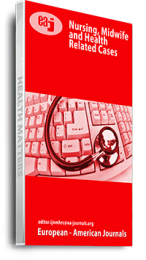This research examines the influence of nurses’ perceptions of the risk associated with COVID-19 on public health outcomes, with a specific emphasis on LASUTH, a vital healthcare referral centre in Lagos, Nigeria. The study utilises a quasi-experimental pre-/post-test approach to evaluate the efficacy of nurse-led interactive education in influencing nurses’ perceptions of COVID-19 risk. The cohort included 527 nurses from LASUTH. The data was gathered by a validated questionnaire, whereas the intervention consisted of a nurse-led interactive training session. The statistical analyses, both descriptive and inferential, were performed using SPSS version 25. The results demonstrate changes in nurses’ views after the intervention. At first, 6.8% of individuals held negative impressions, which subsequently rose to 10.2%. The percentage of fair opinions declined from 27.1% to 20.3%, whilst the percentage of excellent perceptions saw a little rise from 66.1% to 69.5%. The average perception score reduced from 13.2±3.47 to 12.5±3.76, indicating a rise in awareness and changed attitudes after the intervention. The results indicate a reduction in the level of intense anxiety towards the virus, from 27.1% to 22%. There is also an increased level of worry over mortality, as well as a greater recognition of the need of preventative actions. The intervention significantly altered the nurses’ sense of danger. The results also verified a substantial disparity (p < 0.05) in the perceptions before and after the intervention, so providing evidence to reject the null hypothesis. This research highlights the efficacy of treatments led by nurses in altering perceptions of COVID-19 risks, offering valuable information for public health initiatives and interventions.
Keywords: Nurses, Perception, disease risk, nurse-led interactive education

